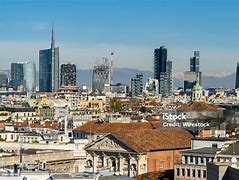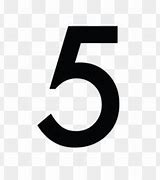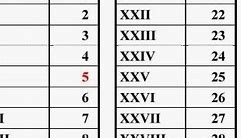
The Unbearable Lightness of Being
Kundera's most famous work, The Unbearable Lightness of Being, was published in 1984. The book chronicles the fragile nature of an individual's fate, theorizing that a single lifetime is insignificant in the scope of Nietzsche's concept of eternal return. In an infinite universe, everything is guaranteed to recur infinitely. In 1988, American director Philip Kaufman released a film adaptation, which Kundera disliked.[17] The book focuses on the life of a Czech dissident surgeon's journey from Prague to Zurich and his return to Prague, where he was not permitted to take up work as a surgeon.[31] He worked instead as a window washer and used his job to arrange sex with hundreds of women.[31] At the end he and his wife move to the country.[31] The book was not published in Czechoslovakia due to Kundera's fear it would be badly edited. He eventually delayed the publishing date for years and only in 2006 would an official translation be available in the Czech language.[31] The book had previously been available in Czech, however, as a Czech expatriate in Canada had translated the book in 1985.[31]
In 2000, Ignorance was published. The novel centres on the romance of two alienated Czech émigrés, two decades after the Prague Spring of 1968. It is thematically concerned with the suffering of emigration. In it, Kundera undermines the myths surrounding nostalgia and the émigré's longing for return. He concludes that in the "etymological light nostalgia seems something like the pain of ignorance, of not knowing." Kundera suggests a complex relationship between memory and nostalgia, writing that our memory can "create rifts both with our earlier selves and between people who ostensibly share a past." The main characters of Irena and Josef discover how emigration and forgetfulness have ultimately freed them from their pain. Kundera draws heavily from the myth of Odysseus, specifically the "mythology of home, the delusions of roots."[35][36] Linda Asher translated the original French version of the novel to English in 2002.[37]
Czech and French novelist (1929–2023)
Milan Kundera ( KU(U)N-dər-ə;[1][2] Czech: [ˈmɪlan ˈkundɛra] ⓘ; 1 April 1929 – 11 July 2023) was a Czech and French novelist. Kundera went into exile in France in 1975, acquiring citizenship in 1981. His Czechoslovak citizenship was revoked in 1979, but he was granted Czech citizenship in 2019.[3]
Kundera's best-known work is The Unbearable Lightness of Being. Before the Velvet Revolution of 1989, the country's ruling Communist Party of Czechoslovakia banned his books. He led a low-profile life and rarely spoke to the media.[4] He was thought to be a contender for the Nobel Prize in Literature and was also a nominee for other awards.[5][6]
Kundera was awarded the Jerusalem Prize in 1985, the Austrian State Prize for European Literature in 1987, and the Herder Prize in 2000. In 2021, he received the Golden Order of Merit from the president of Slovenia, Borut Pahor.[7]
Kalori dada ayam goreng
Kalori dada ayam tanpa kulit yang sudah dimasak dengan berat 100 gram adalah 165 kalori. Sebanyak 80 persen kalorinya berupa protein, sementara 20 persen kalorinya berupa lemak.
Untuk dada ayam goreng kita dapat mengasumsikan bahwa ayam tersebut menyerap minyak sebesar 1 sdm sehingga 100 gram ayam goreng bagian dada mengandung kalori 297,6 kalori.
The Book of Laughter and Forgetting
In 1975, Kundera moved to France where The Book of Laughter and Forgetting was published in 1979.[13] An unusual mixture of novel, short story collection, and authorial musings which came to characterize his works in exile, the book dealt with how Czechs opposed the Communist regime in various ways. Critics noted that the Czechoslovakia Kundera portrays "is, thanks to the latest political redefinitions, no longer precisely there," which is the "kind of disappearance and reappearance" Kundera ironically explores in the book.[34]
Political activism and professional career
His expulsion from the Communist party was described by Jan Trefulka in his novella Pršelo jim štěstí (Luck Rained on Them, 1962).[19] Kundera also used the expulsion as an inspiration for the main theme of his novel Žert (The Joke, 1967),[19] in which he ridiculed the ruling Communist party.[20] In 1956 Kundera was readmitted to the party but was expelled for a second time in 1970.[14][23] He took part in the Fourth Congress of the Czech Writers union in June 1967, where he delivered an impressive speech.[24] In the speech he focused on the Czech effort to maintain a certain cultural independence among its larger European neighbours.[24] Along with other reformist Communist writers such as Pavel Kohout, he was peripherally involved in the 1968 Prague Spring. This brief period of reformist activities was crushed by the Warsaw Pact invasion of Czechoslovakia in August 1968. Kundera remained committed to reforming Czechoslovak Communism, and argued vehemently in print with fellow Czech writer Václav Havel, saying, essentially, that everyone should remain calm and that "nobody is being locked up for his opinions yet," and "the significance of the Prague Autumn may ultimately be greater than that of the Prague Spring." In 1968, the year his books were banned by the Czech Government, he made his first journey to Paris, where he befriended the publisher Claude Gallimard.[14] After he returned to Prague, he was frequently visited by Gallimard who encouraged Kundera to emigrate to France and also smuggled the manuscript for Life Is Elsewhere out of Czechoslovakia.[14] Finally, Kundera gave in and moved to France in 1975.[14] In 1979, his Czechoslovak citizenship was revoked.[17] He lectured for a few years at the University of Rennes.[14][23] After three years, he moved to Paris.[14]
Although his early poetic works are staunchly pro-communist,[25][26] his novels escape ideological classification. Kundera repeatedly insisted that he was a novelist rather than a politically motivated writer. Political commentary all but disappeared from his novels after the publication of The Unbearable Lightness of Being except in relation to broader philosophical themes. Kundera's style of fiction, interlaced with philosophical digression, was greatly inspired by the novels of Robert Musil and the philosophy of Nietzsche.[27] In 1945 the journal Gong published his translation of some of the works from the Russian poet Vladimir Majakovsky.[19] The next year the journal Mladé archy printed a poem of his, to which he was inspired by his cousin Ludvík Kundera, also a writer.[19]
In the mid-1950s he was readmitted to the Communist party and he was able to publish Manː A Wide Garden in 1953, a long epic poem in 1955 called The Last May dedicated to Julius Fucik and the collection of lyrical poetry Monologue in 1957.[13] Those, together with other fore and afterwords are deemed to be written in the fashion of uncontroversial propaganda which allowed him to benefit to a certain degree from the advantages that came with being an established writer in a Communist environment.[13] In 1962 he wrote the play The Owners of the Keys, which became an international success and was translated into several languages.[13] Kundera himself claimed inspiration from Renaissance authors such as Giovanni Boccaccio, Rabelais and, perhaps most importantly, Miguel de Cervantes, to whose legacy he considered himself most committed. Other influences include Laurence Sterne, Henry Fielding, Denis Diderot, Robert Musil, Witold Gombrowicz, Hermann Broch, Franz Kafka, Martin Heidegger and Georges Bataille.[28] Originally he wrote in the Czech language, but from 1985 onwards, he made a conscious transition from Czech towards the French which has since become the reference language for his translations.[13] Between 1985 and 1987, he undertook the revision of the French translations of his earlier works himself. With Slowness his first work in French was published in 1995.[29] His works were translated into more than eighty languages.[13]
In his first novel, The Joke (1967), he satirized the totalitarianism of the Communist era.[30] Following the Soviet occupation of Czechoslovakia in August 1968, the book was banned.[20] His criticism of the Soviet invasion in 1968 led to his blacklisting[19] in Czechoslovakia and the banning[31] of his books.
Kundera's second novel was first published in French as La vie est ailleurs in 1973 and in Czech as Život je jinde in 1979. Life Is Elsewhere is a satirical portrait of the fictional poet Jaromil, a young and very naïve idealist who becomes involved in political scandals.[32] For the novel Kundera was awarded the Prix Médicis the same year.[33]
Writing style and philosophy
François Ricard suggested that Kundera conceived his fiction with regard to the overall body of his work, rather than limiting his ideas to the scope of just one novel at a time, his themes and meta-themes traversing his entire œuvre. Each new book manifests the latest stage of his personal philosophy. Some of these meta-themes include exile, identity, life beyond the border (beyond love, beyond art, beyond seriousness), history as a continual return, and the pleasure of a less "important" life.[40][verification needed]
Many of Kundera's characters seem to develop as expositions of one of these themes at the expense of their full humanity. Specifics in regard to the characters tend to be rather vague. Often, more than one main character is used in a novel; Kundera may have even completely discontinued a character, resuming the plot with somebody new. As he told Philip Roth in an interview in The Village Voice: "Intimate life [is] understood as one's personal secret, as something valuable, inviolable, the basis of one's originality".[41]
Kundera's early novels explore the dual tragic and comic aspects of totalitarianism. He did not view his works, however, as political commentary. "The condemnation of totalitarianism doesn't deserve a novel", he said. According to the Mexican novelist Carlos Fuentes, "What he finds interesting is the similarity between totalitarianism and the immemorial and fascinating dream of a harmonious society where private life and public life form but one unity and all are united around one will and one faith". In exploring the dark humour of this topic, Kundera seems deeply influenced by Franz Kafka.[28]
Kundera considered himself a writer without a message. In Sixty-three Words, a chapter in The Art of the Novel, Kundera tells of a Scandinavian publisher who hesitated to publish The Farewell Party because of its apparent anti-abortion message. Not only was the publisher wrong about the existence of such a message, Kundera explained, but, "I was delighted with the misunderstanding. I had succeeded as a novelist. I succeeded in maintaining the moral ambiguity of the situation. I had kept faith with the essence of the novel as an art: irony. And irony doesn't give a damn about messages!".[42]
Kundera also ventured often into musical matters, analyzing Czech folk music for example; or quoting from Leoš Janáček and Bartók; or placing musical excerpts into the text, as in The Joke;[43] or discussing Schoenberg and atonality.[44]
Berikut ini beberapa kalori ayam goreng sesuai dengan bagian mana yang dikonsumsi:
Kalori paha atas goreng
Dalam satu paha atas tanpa kulit yang sudah dimasak (52 gram) terdapat 13,5 gram protein. Kalori paha atas ayam juga mengandung 109 kalori dalam sepotong paha atau 209 kalori tiap 100 gram sajiannya.
Untuk kalori paha atas goreng menjadi 341,6 kalori.
Bagian-bagian Komputer – Motherboard
Motherboard adalah sebuah papan PCB yang berisi komponen komponen yang terintegrasi dan membentuk sistem penghubung antar bagian pada komputer. Motherboard merupakan bagian komputer yang paling utama. Didalam motherboard terdapat banyak sekali soket dan slot konektor. Semua bagian komputer selalu terhubung ke motherboard. Motherboard sering disebut juga dengan Mainboard dan disingkat Mobo atau mb.
Motherboard yang sekarang kita kenal biasanya berisi :
Komponen komponen elektronika yang sering dijumpai pada motherboard antara lain :
Beberapa merk motherboard yang terkenal saat ini :
Motherboard yang baik biasanya harus memenuhi kriteria berikut ini :
Kalori paha bawah goreng
Sepotong paha bawah ayam tanpa kulit atau tulang sebesar 44 gram mengandung 12,4 gram protein. Kalori paha bawah ayam tanpa kulit mengandung 76 kalori atau 172 kalori per 100 gram.
Kalori paha bawah goreng dengan berat 100 gram ialah 304,6 kalori.
Sayap ayam tanpa kulit atau tulang (21 gram) mengandung 6,4 gram protein. Sedangkan kalori satu buah sayap ayam tanpa kulit adalah 42 kalori. Sepotong sayap ayam goreng mengandung kalori sekitar 174,6 kalori.
Kalori ayam goreng satu potong ini memang terbilang lebih besar dibandingkan dengan kalori ayam panggang ataupun ayam rebus. Bagi beberapa orang yang sedang menjalani diet penurunan berat badan sebaiknya jangan mengolah ayam dengan cara digoreng.























